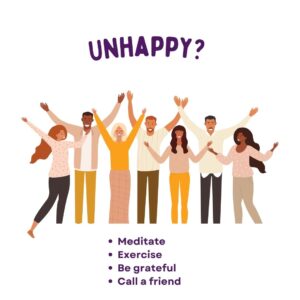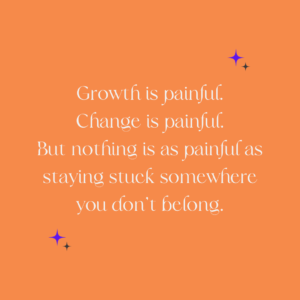 No one is happy all the time. Regardless of who you are or what you do, there will be times when your peace of mind gets disrupted. You forget to put money in the meter and get a parking ticket. Your partner says something that upsets you. You don’t get the raise you were hoping for. The list goes on and on. We are all human, and unhappiness and its synonyms are part of the experience. Think about it. If you weren’t sad or upset now and then, how would you appreciate feeling good?
No one is happy all the time. Regardless of who you are or what you do, there will be times when your peace of mind gets disrupted. You forget to put money in the meter and get a parking ticket. Your partner says something that upsets you. You don’t get the raise you were hoping for. The list goes on and on. We are all human, and unhappiness and its synonyms are part of the experience. Think about it. If you weren’t sad or upset now and then, how would you appreciate feeling good?
How Most People Feel
When asked to rate their happiness on a scale of 1-10, most people say they’re at 7. This doesn’t necessarily mean you’re leading a charmed life, but it does mean you’re feeling pretty good most of the time. It means you have friends, activities you enjoy, a job you at least find interesting, and enough money to provide yourself with food, clothing, and shelter. Occasionally, there might be a glitch or two, but nothing you can’t handle. As a seven, there are even days that exceed your expectations. You get a raise, that person at work you’ve been fantasizing about asks you out, or your youngest child—the late bloomer—gets an A on a spelling test. That’s life as a 7.
Having Suicidal Thoughts?
If you’re feeling down more than you’re feeling up, it’s time to act. If you’re seriously depressed and have suicidal thoughts, call 988—the Suicide and Crisis Lifeline hotline. People there can help. If you’re too depressed to pick up the phone, express your feelings to a trusted friend in a text or email. Write something like, I’m feeling alone and suicidal. Could you please call me? Or are you free to talk? I’m in a bad place now and need a friend. Suicidal thoughts are nothing to ignore. There is no shame ever in asking for help when you need it.
Getting Out of a Funk
What if you’ve been in a funk for a few days and want to feel better? Maybe you’re stuck in a rut after a bad breakup, or the new job isn’t what you thought it would be; how do you get your groove back? It’s easy to think you’ll never be happy again, but you will. According to The Happiness Set Point Theory, 50% or more of your happiness is determined by genetics. Your mindset and activities decide 40%, and 10% depends on external life circumstances. This means that when you’re feeling sad or depressed, you can improve your mood by choosing activities that make you feel better. Exercise, meditation, expressing gratitude, and spending time with friends or family can improve your outlook.
The Setpoint Theory
The setpoint theory explains why some people with similar backgrounds and experiences appear happier than others or why celebrities who seem to have it all are so unhappy. No matter where you fall on the happiness continuum, it’s good to know that your baseline is a point you’ll eventually return to. Research also shows that setpoints are pliable and respond to activities that add value and meaning to your life. For example, personal growth, lifelong learning, mindfulness, and acts of kindness have been shown to elevate setpoints and raise happiness levels.
Remember, if you want to be happier, there are things you can do to raise your happiness setpoint. If you’re so unhappy that you feel like life isn’t worth living, please get help. Call 988.
Jan Fishler is a certified happiness coach and author. Her most recent books are Don’t Stop Now: Making the Most of the Rest of Your Life and 52 Ways to Be Happy: from the inside out. You can learn more at www.JanFishler.net.





